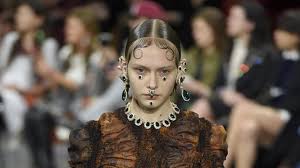Is Mokuyobi Japanese owned? A white-owned clothing brand calling itself “Mokuyoubi” (“Thursday” in Japanese) has set up shop in LA’s Little Tokyo and has refused to address community concerns over cultural appropriation and exploitation of Japanese imagery for profit.
What does Mokuyobi mean? The name Mokuyobi or 木曜日 (もくようび) means Thursday in Japanese.
Who owns Mokuyobi? Julie Pinzur, the brainchild behind Mokuyobi, is as bubbly, fun and energetic as her brand. She shares with us her journey from sewing as a child, to raising $25k in a Kickstarter campaign, to having one of the coolest brands around.
What does Moku mean in Japanese? eye, class, look, insight, experience, care, favor.
Is Mokuyobi Japanese owned? – Additional Questions
What does Kinyoubi mean in Japanese?
Friday: 金曜日, kinyoubi. Saturday: 土曜日, doyoubi.
What is Byouin in Japanese?
病院 【びょういん】 (n,adj-no) hospital; (P)
What is Raishuu in Japanese?
coming together; gathering and coming Details ▸ らいしゅう 来秋
What is Suiyoubi?
Word. 水 すい 曜 よう 日 び suiyoubi. Meaning. Wednesday.
What is Ogenki desu ka?
In OGENKI DESU KA (Are you fine?), OGENKI is an adjective GENKI (fine, healthy) with an honorific O before it. If you answer, “Yes, I’m fine,” you say HAI, GENKI DESU.
What is yasumi?
Yasumi (written: 安見, 保見 or やすみ in hiragana) is a Japanese surname. Notable people with the surname include: Kohei Yasumi (born 1978), Japanese mixed martial artist. Yasumi Naomasa (安見 直政, died 1572), Japanese samurai. Rie Yasumi (やすみ りえ, born 1972), Japanese poet and writer.
What does Genki desu ka?
Updated on February 06, 2019. Ogenki desu ka means “How are you?” in Japanese. The Japanese characters are お元気ですか。 (おげんきですか。 Abe, Namiko.
What is Anata wa?
Let me summarize them as follows. anata wa – あなたは : a phrase meaning ‘you are’. It could also be used like “and you?” with the pitch raised. anata – あなた : a pronoun meaning ‘you’. Japanese people do not use it that often because it is used by a wife to call her husband.
What is Daijoubu desu ka?
daijoubu desu ka? = are you alright?, are you okay? ( you are asking someone)
Is Ogenki desu ka polite?
“O-genki desu ka” is the most polite expression of these three and is used to people you don’t know well or people in higher positions. “genki desu ka” is more polite than ”genki?” and is used by people in higher positions to people in lower positions. For example, teachers to students and superiors to subordinates.
Why is Genki called Genki?
Genki is a Japanese word without a direct English translation. It roughly means having energy, pep, or health, the kanji 元気 mean “original spirit” or good health and high vigor. The term 元気 was used in ancient China, to refer to a primal energy that makes up all things. Today in Japan it is a common greeting!
How do you respond to Genki desu yo?
there are a lot of possible generally positive responses to “ogenki desu ka”: the standard “(hai,) genki desu.” meaning “I’m fine/I’m energetic.” “ma ma desu” meaning “I’m so-so.” “kekko ii desu yo.” meaning “I’m pretty good.”
What do you reply to ohayo?
The perfect ohayo gozaimasu reply
There is actually no specific reply that should be given to “Good Morning” greetings in Japan. It could be replied with a simple “Ohayou” or “Daijobudesu”. The first word means good morning as well, and the second phrase means “I am good” in Japanese.
Does Hai mean yes?
The Many Meanings of “Hai” : One of the first things you probably learned to say in Japanese is “hai” (はい). Even a lot of people who don’t know any Japanese at all still know that’s the word for “yes.” It’s right up there with well-known Japanese words like “konnichi wa” and “arigatou.”
How do you respond to Oyasumi?
When your friend says “oyasumi” to you, you should also reply to your friend with “oyasumi“.
Why do Japanese say Gozaimasu?
The word ‘gozaimasu’ is a very polite expression and can roughly be translated as “am,” “is,” or “are” in English. The phrase “ohayo” comes from an adjective, “hayai” meaning “early” and it literally means “it’s early.” So, “ohayo” can take the polite expression “gozaimasu” after that to say it politely.
How do you respond to Domo arigato?
“Dou itashimashite” (どう致しまして) means “You’re welcome” and is widely known as the common response to “arigato gozaimasu”, but it sounds rather stiff and formal. “Iie iie” (いいえいいえ) or “ii yo ii yo” (いいよいいよ) translate as “Not at all” and are casual replies that are more frequently used in daily life.
